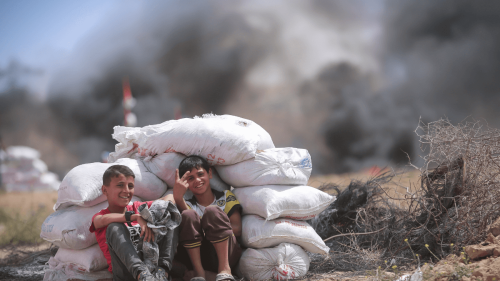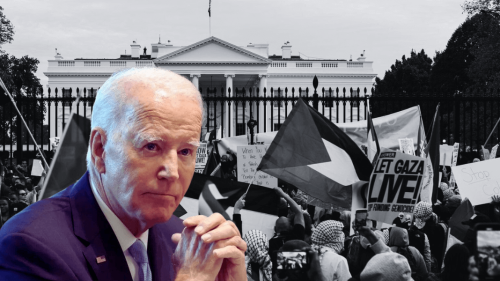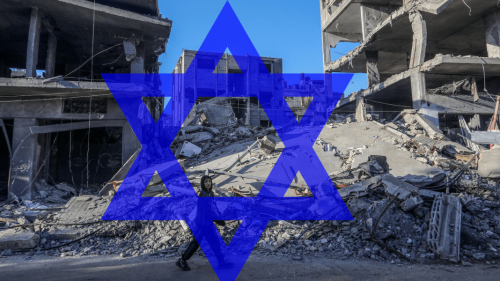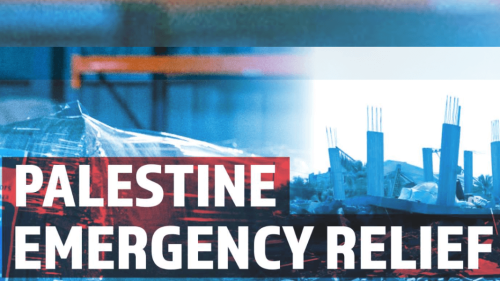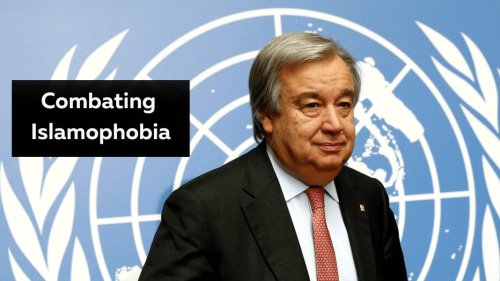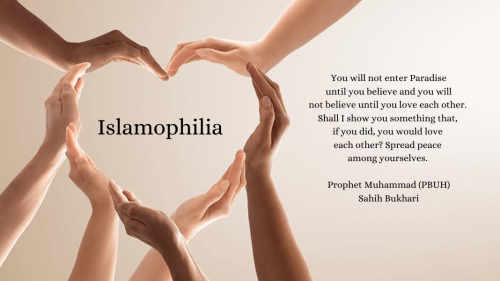Minorities Internalize Negative Stereotypes of their Community

A new survey by the Institute for Social Policy and Understanding (ISPU), a think tank based in Washington and Dearborn, Michigan, corroborates a disturbing finding. While Islamophobia has declined among other American religious groups, it has increased among Muslims themselves.
American Muslims scored 26 on the ISPU’s Islamophobia index of 0 to 100, which measures a group’s endorsement of anti-Muslim stereotypes. That’s higher than many other religious groups, such as Jews, who scored only 17 on the Islamophobia index; Protestants, who scored 23; or the religiously unaffiliated, who had a score of 22. White Catholics (28) and white evangelicals (30) scored highest on the Islamophobia index.
“Minority groups can internalize negative stereotypes about their community,” said Erum Ikramullah, research project manager and the report’s co-author. “It has huge effects on mental health, feelings of shame, embarrassment and self-identity.”
Rampant in today's divided political and religious atmosphere is 'scapegoating,' which essentially is a form of gossip and slander, blaming and holding responsible a disliked person or group of people for the wrongs from which, it is felt, you or your group suffer negative consequences.
Scapegoating increasingly ends up in active hate, and leads to doing, or trying to do, violent harm to the scapegoated group, usually indiscriminately, simply because randomly targetable individuals belong to [or are perceived to belong to] the hated group.
Intolerance and then hate may develop into a threat to life and limb; more and more in the news, overt actions are being taken, either by self-selected loaners or by organized groups, with the intent to remove the scapegoated persons from society, or to kill if nothing else works.
This anxiety had produced three major scapegoat categories: immigrants, Jews, and the religion of Islam —as can been seen in a major rise in Anti-Semitism and Islamophobia in the United States and Great Britain.
A poll reports that 35 percent of British people think Islam is a threat to the British way of life in the wake of 2017 terrorist attacks; and that anti-Semitism on the political left is an increasing issue in the United Kingdom.
The anti-fascist group, Hope Not Hate, has produced their annual “The State of Hate” report, based on a survey of 10,383 Brits and conducted in July 2018; it found that anti-Muslim prejudice has hardened in the previous eight years and, among far-right groups, supplanted fears of increasing immigration.
The report also pinpointed left-wing anti-Semitism, particularly in the Labour Party, as a critical problem. The authors of "The State of Hate" cited conspiracy theories and tropes about undue levels of Jewish power, as well as dismissing allegations of liberal anti-Semitism as a right-wing or Zionist plot.
Within the Muslim community, the report found that higher Islamophobia index scores were driven primarily by Muslims who identify as white. White Muslims had a score of 40 on the index.
Moustafa Bayoumi, a professor of of English at Brooklyn College, City University of New York, suggested that’s a crisis of whiteness that has affected white Muslims, too. “With the whole country being driven by conservative politics centered on whiteness, it’s naive to think that white Muslims would not be susceptible to that same ideology,” Bayoumi said.
Sadly younger Muslims were more likely to internalize Islamophobia. Scapegoating refers to the human tendency to blame someone else for one's own economic, social or personal problems.
Scapegoating serves as an opportunity to publicly vent one’s own frustrations, rage and hate, while ignoring one’s own failures or misdeeds and maintaining one's positive self-image.
It is important for all members of minority groups to realize for themselves and teach others that the victims of hate filled scapegoaters are completely innocent of all responsibility for the problems that the scapegoater has. Do not ever let children fall for the hate virus that claims the victims somehow brought this hatred upon themselves.
The ISPU Muslim Poll is the sixth annual survey investigating the views of Muslims, Jews and the general population. The 2022 survey, conducted between February and March, was fielded online and on the phone from among 807 U.S. Muslims, 351 U.S. Jews and 1,001 U.S. adults from the general population, for a total of 2,159 respondents. The survey had a margin of error of plus or minus 4.2 percentage points.
Among its other findings, the survey found U.S. Muslims were more optimistic about the direction of the country than other religious groups. Some 60% of U.S. Muslims approve of President Joe Biden’s job performance, and 81% are registered to vote — a huge jump over 2016, when a previous poll found only 60% were registered.
The survey also finds that in keeping with all other minority faith groups, U.S. Muslims are most likely to register as Democrats (46%) or independents (40%). Only 10% registered as Republicans.
Despite their optimism and high rates of civic engagement, 60% of Muslims also said they experienced discrimination — more than Jews and the general public. Most of the discrimination they experienced was in institutional settings: when applying for a job (37%), when interacting with law enforcement (38%), at the airport (44%) and when seeking health care services (27%).
This year, the survey also asked about discrimination on social media and found that 46% of U.S. Muslims said they experienced bias, such as having messages removed, having accounts closed or being kicked off a platform.
But the finding about internalized Islamophobia was the most concerning, especially since it has grown. Between 2020 and 2022, the score increased 6 points, from 20 to 26.
Studies have shown that minorities can internalize the negative stereotypes of their group from popular culture, news media and political rhetoric, said Muniba Saleem, a professor in media psychology, intergroup communication and diversity at the University of California, Santa Barbara. Internalized Islamophobia, the study found, was more prevalent among younger Muslims — those born after the 9/11 terrorist attacks in which Muslims were demonized.
Perhaps our religious and political leaders could help improve interfaith relations in 2023 by constantly repeating the important lesson taught by the German Protestant theologian Pastor Martin Niemöller (1892–1984) about the cowardice of German intellectuals following the Nazis' rise to power; and the subsequent purging of their chosen targets, group after group:
First they arrested Socialists, and I did not speak out— Because I was not a Socialist.
Then they arrested Trade Unionists, and I did not speak out—Because I was not a Trade Unionist.
Then they arrested Jews, and I did not speak out—Because I was not a Jew.
Then they came for me—and there was no one left to speak out for me.
And our religious and political leaders could also help improve interfaith relations by constantly repeating the important lesson taught by an eleventh century Spanish Muslim theologian:
“Declare your jihad on thirteen enemies you cannot see - Egoism, Arrogance, Conceit, Selfishness, Greed, Lust, Intolerance, Anger, Lying, Cheating, Gossiping and Slandering [scapegoating]. If you can master and destroy them, then will you be ready to fight the enemy you can see.” Imam Al-Ghazali
Topics: American Muslims, Anti-Semitism, Bigotry, Islamophobia, Racism
Views: 727
Related Suggestions











